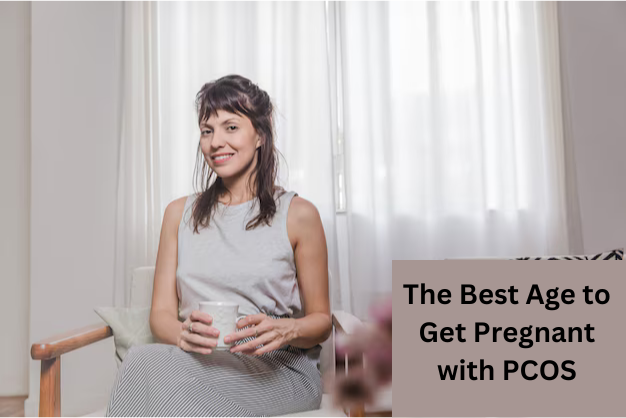The Best Age to Get Pregnant with PCOS
Polycystic Ovary Syndrome (PCOS) can significantly impact fertility. While there's no definitive "best age" to get pregnant with PCOS, understanding how age and PCOS interact can help you make informed decisions about family planning.
The Impact of Age on Fertility
Natural Decline: As women age, their fertility naturally declines. This is due to a decrease in the quality and quantity of eggs.
PCOS-Related Challenges: PCOS can further exacerbate age-related fertility decline, making it more difficult to conceive as you get older.
The Best Age for PCOS and Pregnancy
Early to Mid-30s: Generally, the late 20s and early 30s are considered the optimal age range for women with PCOS to start trying for a baby. During this time, fertility is typically higher, and the risks associated with maternal age are relatively low.
Individual Variations: However, it's important to note that the best age for you can vary depending on your specific circumstances, such as the severity of your PCOS symptoms, your overall health, and your desire for a family.
Factors to Consider
PCOS Severity: The severity of your PCOS symptoms can influence your fertility. Women with milder PCOS may have a higher chance of conceiving naturally, while those with more severe symptoms may require medical intervention.
Ovulation: Irregular ovulation is a common symptom of PCOS. If you have infrequent or irregular periods, it may take longer to conceive.
Health Conditions: Other health conditions, such as obesity or diabetes, can also affect fertility and pregnancy outcomes.
Personal Goals: Your personal desire for a family and your life circumstances should also be considered.
Seeking Fertility Treatment
If you have PCOS and are struggling to conceive, it's important to consult with a fertility specialist. They can evaluate your individual situation and recommend appropriate treatment options, which may include:
Lifestyle Modifications: Weight management, dietary changes, and exercise can improve fertility in women with PCOS.
Medication: Fertility medications can help induce ovulation and increase your chances of conception.
Assisted Reproductive Technologies (ART): If lifestyle changes and medication are not effective, ART options like in vitro fertilization (IVF) or intrauterine insemination (IUI) may be considered.
{Also Read: What is PCOS?}
New World Fertility Centre: Your Partner in Fertility
At New World Fertility Centre, we understand the unique challenges faced by women with PCOS. Our experienced fertility specialists can provide personalized guidance and support throughout your journey to parenthood. We offer comprehensive fertility evaluations, advanced treatment options, and emotional support to help you achieve your family goals.
Conclusion
While the best age to get pregnant with PCOS may vary, it's generally recommended to start trying sooner rather than later. By understanding the factors that influence fertility and seeking appropriate medical advice, you can increase your chances of achieving a successful pregnancy.
Frequently Asked Questions(FAQs)
1. What is the best age to get pregnant if I have PCOS?
The best age to get pregnant with PCOS is typically in your 20s and early 30s when fertility is at its peak, and the effects of PCOS may be less pronounced. Women in their 20s generally have higher egg quality and are less likely to experience pregnancy complications.
2. Is it harder to get pregnant with PCOS as I age?
Yes, fertility naturally declines with age, and women with PCOS may face additional challenges as they age. After age 35, egg quality and the chances of ovulating regularly decrease, making it harder to conceive. However, fertility treatments can still be successful for women over 35.
3. Can I get pregnant with PCOS in my 30s?
Yes, many women with PCOS conceive in their early and mid-30s. While fertility starts to decline after age 30, proper medical support, lifestyle changes, and fertility treatments like ovulation induction or IVF can help increase the chances of pregnancy.
4. Is it possible to get pregnant with PCOS after age 40?
While fertility significantly declines after age 40, women with PCOS can still conceive. However, the likelihood of natural conception is lower, and fertility treatments like IVF may be necessary. The success rates for pregnancy over 40 are typically lower, and the risk of complications is higher.
5. What are the risks of waiting to get pregnant with PCOS?
As you age, the risks of pregnancy complications such as miscarriage, gestational diabetes, and preeclampsia increase, especially for women with PCOS. Additionally, fertility declines after age 35, making it more difficult to conceive naturally.

 Sep-26-2024
Sep-26-2024